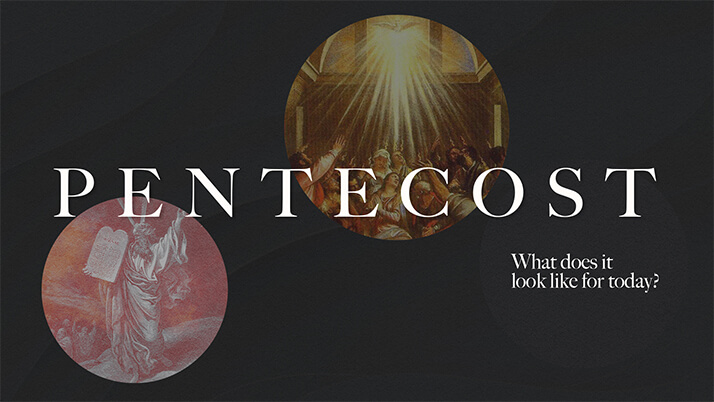The word Pentecost has several meanings…
The word Pentecost has several meanings. Many of us may have had our introduction to Pentecost in our religious upbringings or backgrounds where a mighty wind came and tongues like fire fell upon the apostles’ heads in the upper room and where they were all filled with the Holy Spirit and began to speak in other tongues. Have you ever stopped to think about this account and it is of any relevance to us today?
I began to study more in-depth about this spring feast, also called the latter rains. The spring feasts are Passover (Pesach), Unleavened Bread (Chaq Hamotzi), First Fruits (Yom Habikkurim), and then Pentecost (Shavuot). As stated in Hosea 6:3, “His going forth is established as the morning; He will come to us like the rain, Like the latter and former rain to the earth.” And in Leviticus 23:4, “These are the feasts of the LORD, holy convocations which you shall proclaim at their appointed times.” God’s seven feasts are said to be His and not Jewish customs that allow us to look deeper into Pentecost and the meaning behind this feast.
God makes it clear that we – His people – are to keep His feasts holy.
God makes it clear that we – His people – are to keep His feasts holy. What exactly does it mean to keep His feast holy? In Hebrew, holy means ko’-desh, a sacred place or thing, consecrated, dedicated, hallowed, saint, and sanctuary. Why would God care about the way we observe these days? The reason is the feasts are appointed by God and they are eternal, meaning that they will never end. They are not just days on a calendar that come around once a year and then are forgotten until the next year.
Feast in Hebrew means moed, which is an appointment, a season, an assembly, a sign, and a rehearsal. God structured major events on His feasts. You can find parallel themes thousands of years apart on the same days of these feasts, because they are a rehearsal of His return.
Shavout, also known as the Feast of Weeks in English, is celebrated seven weeks after Passover. It begins on the second evening of Passover and takes place exactly fifty days later. It also is associated with the grain harvest and commemorates the giving of the Torah (Law) on Mt. Sinai after the exodus of the Hebrews from Egypt. The Greek word for fifty is the word Pentecost, which is where we come in with our understanding of Pentecost.
On Passover, the people of Israel were freed from being slaves to Pharaoh (which means double-minded), and fifty days later on Shavuot, they were given the Torah and became a nation committed to serving God.
Just as there is a physical Passover, there is also a spiritual one.
Just as there is a physical Passover, there is also a spiritual one. “God is spirit, and those who worship him must worship in Spirit and truth,” (John 4:24). The early church father Origen states:
“Christ our Passover was sacrificed for us” and we keep the feast by eating the flesh of the Word (Jesus) and always keeping the Paschal feast; for the Pascha means a “Passover,” and one who is always striving in his thoughts, words, and deeds, to pass over from the things of this life to God, and is hastening towards the city of God is he who can truly say, “We are risen with Christ,” and “He hath exalted us, and made us sit with Him in heavenly places in Christ,” is the one always living in the season of Pentecost. When giving of oneself to supplication and prayer we may become worthy of receiving “the mighty wind rushing from heaven,” which is powerful to destroy sin and its fruits among men, and worthy of having some share of the tongue of fire which God sends.[1]
So, with that in mind, let’s discuss the upper room. Can you picture how it looked? The Apostles were waiting, expectant but not 100% sure of what was to come. They heard what Jesus told them after He resurrected and ascended. He said He would send the Holy Spirit the Helper, the Teacher, and the Comforter. Their mindsets were at rest; they were in one accord. Silently waiting and then suddenly their lives changed in a moment. They would never be the same again. The Apostles would go forth boldly with power and truth to proclaim who Jesus is to the world. The revelation of who Jesus truly was, a mystery revealed, would be given to those who have an ear to hear and a heart to perceive. Seeing in the spirit and not in the carnal, the church was birthed.

[1.] Origen-Against Celsus Book 8 Chap.XXII
All scripture references from the New King James Version of the Bible.

